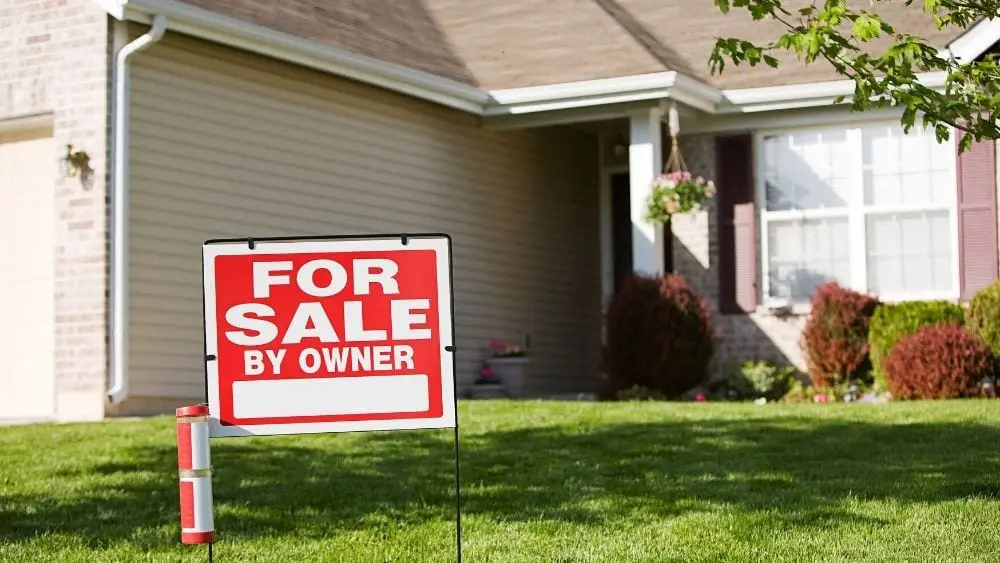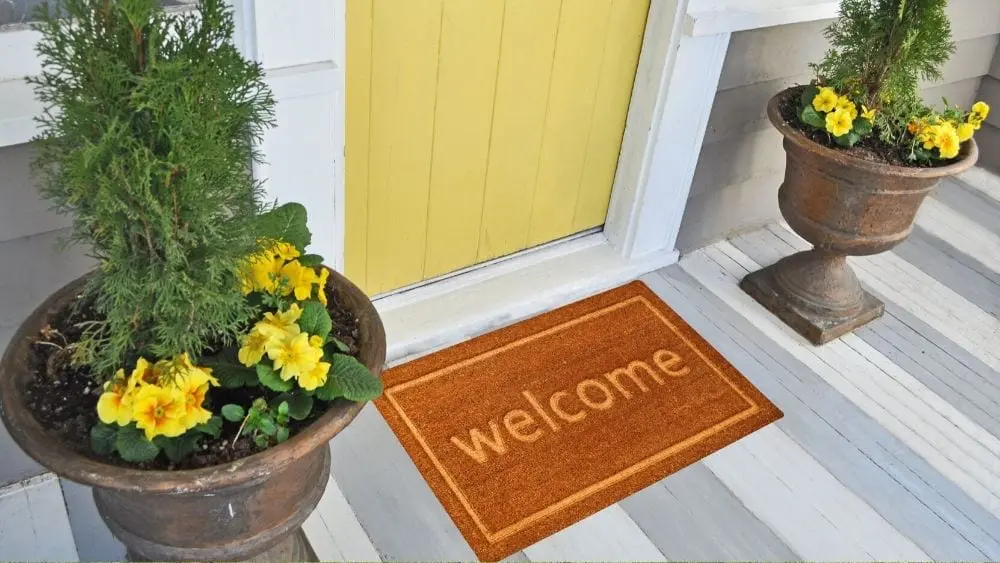
Selling your house can be an expensive endeavour – between the commission fees to closing costs, homeowners can end up paying another 10 percent or more of their home’s sale price.
It’s no wonder some savvy homeowners are turning to FSBO – pronounced fizz-bow – bypassing the middle man altogether and selling their homes without a real estate agent, thus saving the standard six percent commission. On a $250,000 home, that’s a savings of $15,000.
For Sale By Owner – FSBO – is when a homeowner prepares, lists and sells their home without the help of a professional real estate agent; homeowners are in the driver’s seat throughout the entire process, from deep cleaning and staging, to preparing a listing, marketing, then showing and negotiating offers.
FSBOs accounted for 11 percent of home sales in 2018, according to the National Association of Realtors. The typical FSBO home sold for $200,000 compared to $280,000 for agent-assisted homes – but experts note that it’s not because FSBOs are getting lower-priced offers. Instead, they’re likely selling smaller, more affordable homes compared to homes sold by agents.
Homeowners who choose the FSBO route say selling their homes without an agent saves them time and money, and that they’re more familiar with their home and all of its selling features.
But FSBO comes with its fair share of work too, especially for homeowners who aren’t familiar with the real estate market and the intricacies of marketing and closing. Like any DIY project, it requires a lot of homeowners’ time and efforts – you’re the project manager.
If you’re thinking of selling your home via FSBO, here’s everything you need to know.
How to Price Your Home
Getting the right price on your home is one of the most difficult tasks for FSBO sellers, according to the NAR. It found that 19 percent of FSBO sellers found this task to be the trickiest.
While real estate agents may understand the housing market much better than homeowners, FSBO sellers can compensate by doing their homework before deciding on how to adequately price their home.
Real estate agents rely on a Comparative Market Analysis report, or a “comp,” which is a comprehensive look at how much similar homes have recently sold for in your neighborhood. You can pull this information together by viewing recent sales and listings in your area.
Recent sellers typically sold their homes for a median of 99 percent of the listing price, and 23 percent reported reducing the asking price at least once, according to NAR estimates. FSBO sellers need to find that sweet spot. By pricing too high, you can scare buyers away. But if it’s too low, buyers may think something is wrong or that you’re pushing for a bidding war.
Home sellers can also look at online home value estimators, or automated valuation models to calculate how much your home is worth. This will be based on your zip code and your home’s specs, such as square feet, number of rooms and age.
Finally, the most accurate way to price your home is to get it appraised. An appraiser should charge about $300 to $500 but they’ll do a walkthrough your home, assess comp reports, and look at similarly priced homes in the neighborhood and give you a fair, unbiased value assessment.
When buyers make an offer, their mortgage lenders will hire an appraiser anyway to make sure the price is reasonable and their loan is a safe investment.
FSBO home sellers need to be objective, just like a real estate agent would be, in pricing their home. While you may be tied up in nostalgia, buyers are looking for a blank slate and a good deal.
Make Your Home Sale-Worthy

Another 13 percent of FSBO sellers said that preparing and fixing up the home for sale was another difficult task. Whether you hire an agent or not, the onus is on the homeowner to roll up their sleeves and deep clean, repair and stage their home.
The only difference is that agents may do a walk-through and recommend repainting, updating the kitchen cabinets or giving your front yard curb appeal. Homeowners can do the same by taking detailed notes of each room zeroing on improvements needed to give the home a makeover.
FSBO sellers are likely going to open houses and looking at listings online as they shop for a new home. If you do likewise, you’ll know first-hand what appeals to home buyers.
Earmark time to give your home a deep cleaning and be sure to declutter. Also make repairs to leaky faucets and creaky doors.
If you’re forgoing an agent, you can also pay for a pre-listing inspection. These home inspections are optional but they provide an invaluable look at how your home will fare at an official inspection later. Your appraiser can also spot problems areas that need sprucing up before listing it.
Hire Professionals for Photos and Staging
Once again, whether you’re working with an agent or not, homeowners need to recruit professional photographers and stagers. This is a step FSBO sellers should not scrimp on, and one that agents often encourage home sellers to do.
Prospective homebuyers are looking at listings online before dropping in at an open house or scheduling a private viewing. Fifty percent of homebuyers found their new homes online, according to the NAR. This is why a polished, staged home and high-quality photos are crucial.
Agents may have their go-to stagers and photographers, but FSBO sellers can ask for recommendations or look at photographers’ work and reviews online before hiring one.
Before your photoshoot, a stager can elevate the look of your home with furniture, statement art or mirrors to help to make the space look like a potential buyer’s dream home. Make sure you’ve put away personal items so your home looks a showroom that is move-in ready. Your photographer will then take high-quality photos of each room, and even stitch together the images to create a 360 virtual tour – or a video.
How to List and Market Your Home without an Agent
Marketing and listing your home is another pivotal step when you are going the way of FSBO.
While putting together a listing may be easy for real estate agents, FSBO sellers will need to study listings to look at how they’re structured, how to list their home’s specs, and what features they need to draw attention to.
Real estate agents prepare listings for their clients then share the ad on the MLS – the multiple listing database. FSBO sellers will need to ask a real estate agent to list their ad with the professional photos for you at a cost of about $300 to $500. That’s still far cheaper than paying for an agent’s real estate commission fees. Homeowners can also share their ad on FSBO websites, including ForSaleByOwner.com and HomeLister.
Real estate agents typically embark on a marketing strategy, from promoting your listing to prospective home buyers, developing a social media campaign, or even buying old fashioned newspaper ads and mailing neighborhood flyers.
You can create a marketing strategy, too – the NAR says that 31 percent of FSBO sellers used a yard sign, 24 percent held an open house, 20 percent used the MLS website, and 13 percent bought online classified advertisements. Another 20 percent networked, spreading the word about their home for sale to friends, coworkers, relatives and neighbors, 11 percent shared their listing on Facebook, Twitter and Instagram, and four percent mailed out flyers. A combination of these tactics can help to market your home to prospective buyers. You never know who may be interested.
If FSBO sellers have the time and the skills, they can even create a website for their home, including the professional photos and videos, along with its specs, layout, and your contact information. Resources like Wix or WordPress can help users create a polished website for a reasonable cost.
Show Your Home and Field Offers

FSBO sellers need to be flexible when setting up viewings and showing their home. Having enough time to devote to all aspects of the sale accounted for five percent of difficulties for FSBO sellers, according to the NAR. Another seven percent said selling their property within the planned length of time was another stumbling block.
Usually, real estate agents answer phone calls and emails about their client’s listing, set up appointments, and then arrive to your home to walk them through the property. When you’re the FSBO seller, all of these responsibilities fall on you.
You’re also the expert about your home so you know how to showcase its best attributes and you can answer any questions about your property. You also know the neighborhood so you can quickly answer questions about amenities and give directions.
Agents have their network to show your home to. They may be less inclined to show your FSBO listing to clients because there isn’t a guaranteed commission. You can try to alleviate this roadblock by offering a two or three percent commission to the buyer’s agent to help your listing get more exposure. It is still less than what you would have paid if you hired an agent.
Once the offers start pouring in, it’s your job as the FSBO seller to navigate the negotiation process and choose the best offer on the table.
Real estate agents are a godsend during this stage because they understand the minute details involved and can negotiate on your behalf to secure a better price. But homeowners can get the job done if they understand what’s involved in an offer, including the dates to close and move in, contingencies and the home inspection report.
FSBO sellers need to know that the highest bid isn’t always the best choice. Some offers may come with caveats. Perhaps a buyer will only purchase the house if their current home sells first, or if they qualify for a loan. Agents usually help you look at the strength of each offer, but you can examine the fine print, too.
Don’t shy away from negotiating as a FBSO seller – shoppers sometimes test the waters to see how receptive you are to going below your asking price. You can always make a counter offer. Experts suggest FSBO sellers face lowballing more because buyers know sellers are doing the job themselves to avoid paying fees.
FSBO sellers can also protect their backs by including a “kick-out clause” in the agreement. This allows sellers to keep showing their home and accept another offer if it comes without as many caveats.
Prepare for the Paperwork
One of the final but most arduous steps for FSBO sellers and homeowners relying on agents alike is preparing for closing and getting through the paperwork.
FSBO sellers need to pay careful attention to the federal and state laws. You’ll need to pull together an original sales contract with the purchase price, title deed, proof of ownership, home insurance, mortgage and financing documents. You may need your tax records, your appraisal and any receipts for major renovations and warranties on your home.
There are a handful of ways FSBO sellers can navigate through the paperwork. For starters, there are inexpensive online services and real estate attorneys that help with drafting contracts. Some websites could charge you about $500 for a state real estate buying guide.
Another option is to hire an agent or a lawyer to act as transaction agents, meaning they make sure everything is executed legally. You can check with real estate offices to see if their staff has an experienced transaction agent who can help.
Without the professional help of an agent or a lawyer, the responsibility falls on FSBO sellers to ensure they’re drafting contracts properly. If this step isn’t followed, sellers could end up with a potential lawsuit or buyers may walk away from the deal without any repercussions.
When FSBO Makes Sense
Now that you’ve had a step-by-step look at what’s involved in FSBO, you can decide if you have the time, resources and patience to sell your home without an agent.
Going the FSBO route makes sense in a number of ways. If homeowners are familiar with the home-selling process, or have a marketing, real estate or legal background, a FSBO could be a great DIY project that will save money.
FSBO is a wise approach when sellers already have a buyer in mind. In that case, homeowners can bypass all of the preliminary aspects and jump straight to hiring a transaction agent to assist with the sale.
FSBO is also much easier if the real estate market is hot. In that case, buyers will be zeroing in on your property. FSBO becomes much harder in neighborhoods with an oversaturated market.
Before you decide on whether to hire an agent or take the FSBO route, do your research and assess your comfort level to determine if you have the time and patience. If you have any doubts, it may be worth engaging a real estate agent. But if you have the time and initiative, FSBO could be your new DIY project that could lead to a big savings for your new home.

Carmen Chai is an award-winning Canadian journalist who has lived and reported from major cities such as Vancouver, Toronto, London and Paris. For NewHomeSource, Carmen covers a variety of topics, including insurance, mortgages, and more.
 Best Suburbs Near Salt Lake City
Best Suburbs Near Salt Lake City